Fucking Good Art. Italian Conversations ÔÇô Art in the age of Berlusconi | Book launch
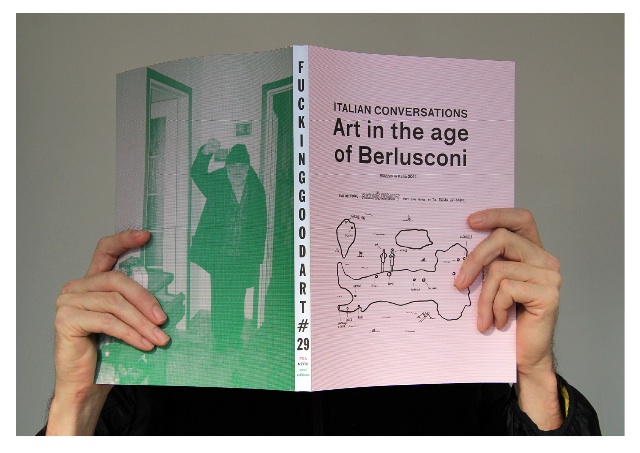 Fucking Good Art, Italian Coversation - Art in the Age of Berlusconi, 2012
Fucking Good Art, Italian Coversation - Art in the Age of Berlusconi, 2012
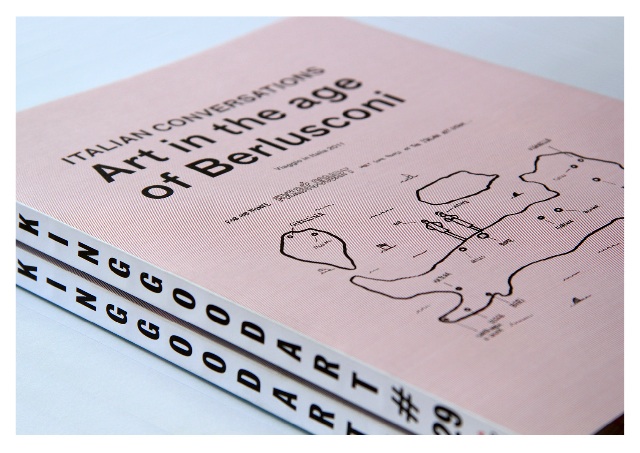 Fucking Good Art, Italian Coversation - Art in the Age of Berlusconi, 2012
Fucking Good Art, Italian Coversation - Art in the Age of Berlusconi, 2012
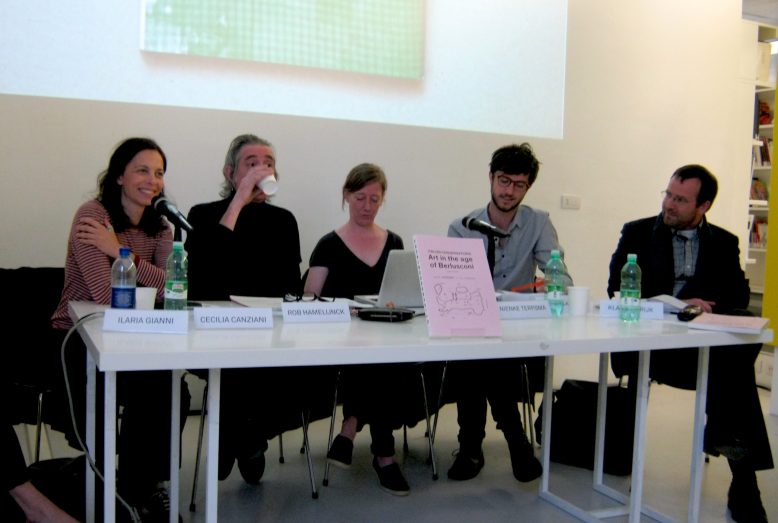 Fucking Good Art, Italian Coversation - Art in the Age of Berlusconi, book launch. MAXXI B.A.S.E., Rome
Fucking Good Art, Italian Coversation - Art in the Age of Berlusconi, book launch. MAXXI B.A.S.E., Rome
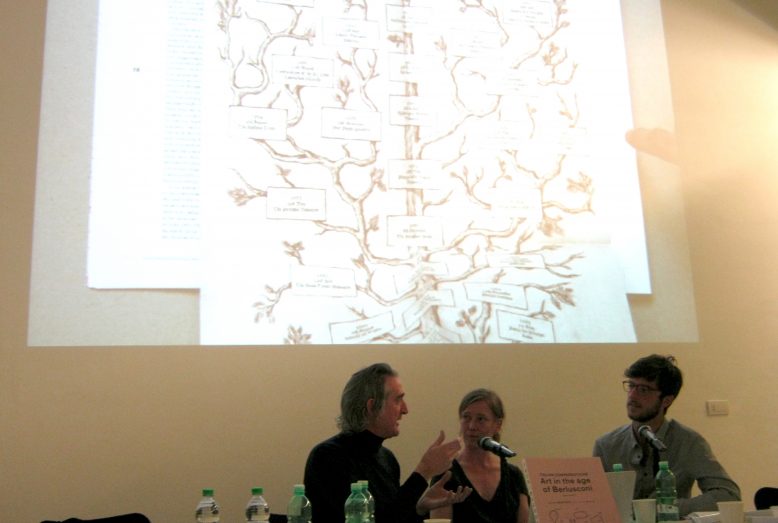 Fucking Good Art, Italian Coversation - Art in the Age of Berlusconi, book launch. MAXXI B.A.S.E., Rome
Fucking Good Art, Italian Coversation - Art in the Age of Berlusconi, book launch. MAXXI B.A.S.E., Rome
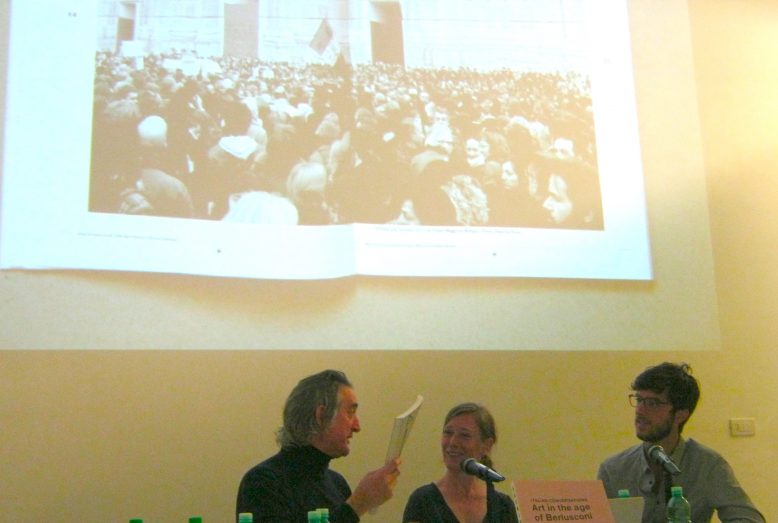 Fucking Good Art, Italian Coversation - Art in the Age of Berlusconi, book launch. MAXXI B.A.S.E., Rome
Fucking Good Art, Italian Coversation - Art in the Age of Berlusconi, book launch. MAXXI B.A.S.E., Rome
Tuesday, March 27th, 2012 from 6.30pm
MAXXI B.A.S.E., Via Guido Reni, 4/A, Rome
A project by Fucking Good Art, commissioned by Nomas Foundation, published by NERO, Rome, and post editions, Rotterdam. Supported by Fonds BKVB (The Netherlands Foundation for Visual Arts, Design and Architecture), Mondriaan Foundation, Embassy of the Kingdom of the Netherlands in Rome, and Parc Saint Leger ÔÇô Centre d'Art Contemporain in France. ÔÇ¿ÔÇ¿In collaboration with Careof and O', Milan; Nosadella.due, Bologna; Progetto Diogene, Turin; Archiviazioni, Lecce; Fondazione Morra Greco, Naples; Francesco Pantaleone Arte Contemporanea, Palermo.
Italian Conversations ÔÇô Art in the age of Berlusconi is an itinerant residency of the Dutch collective Fucking Good Art (Rob Hamelijnck and Nienke Terpsma) in Rome, Bologna, Milan, Turin, Naples, Palermo and Lecce, who placed themselves as outsider observers of the complex Italian cultural scene in the current political and economical background.ÔÇ¿ Starting from an investigation of the territory, through a travel and study experience, the volume provides a mapping of the current cultural Italian situation, at the same time positioning itself as an original critical research.
The artistic duo, lead in their investigations by the partner institutions who acted as Ciceroni guiding them through spaces, venues and local situations, directly met with thinkers, artists, cultural workers and relevant voices. During the months of travel and research in the different cities the artists, experienced the events that in the last year, daily drove to the weakening of the institutionÔÇÖs role in the cultural scenario.
Through a series of interviews, stories, press clippings, dialogues, Italian Conversations offers, in a general redefinition of economical and cultural European policies, a fragmented portrait of the Italian current cultural and social context as a combination of independent initiatives, forms of self-organization made possible by the merging of private and public funds.
Italian Conversations ÔÇô Art in the age of Berlusconi contains 26 conversations with artists, curators, critics and gallerists who play an active role in the Italian contemporary art world, 7 artistsÔÇÖ contributions and 9 texts, as well as a list of independent non-profit private initiatives by artists, curators, collectors and others, compiled in collaboration with partners from the seven different territories involved in this book project.
Book launch:
Guest relators: Vincenzo Latronico (writer and art critic)
Introduction: Cecilia Canziani and Ilaria Gianni (Directors Nomas Foundation), and Klaus de Rijk (Counsellor for Cultural Affairs at the Embassy of the Kingdom of the Netherlands in Rome).
The presentation is in collaboration with MAXXI - Museo nazionale delle arti del XXI secolo, Rome.
Fucking Good Art is an artists duo formed by Rob Hamelijnck and Nienke Terpsma. Since the publication of the first Rotterdam issue ÔÇô an A3 pamphlet on pink paper ÔÇô in December 2003 they have made special editions in Munich, Berlin, Dresden, Copenhagen, Riga, Switzerland, S├úo Paulo, Brussels, Tbilisi and more. ÔÇ¿Fucking Good Art is a travelling editorial project for research in art. The artists are interested in oral history, ethnographic- and documentary film, new modes of (aesthetic) journalism, counter cultures and sub cultures, civil society, self-organisation and DIY (do-it-yourself) strategies, art and activism, resistance, models 'outside' the art market, and ecology. They have a participatory strategy and are by nature highly sensitive to the context they are in.